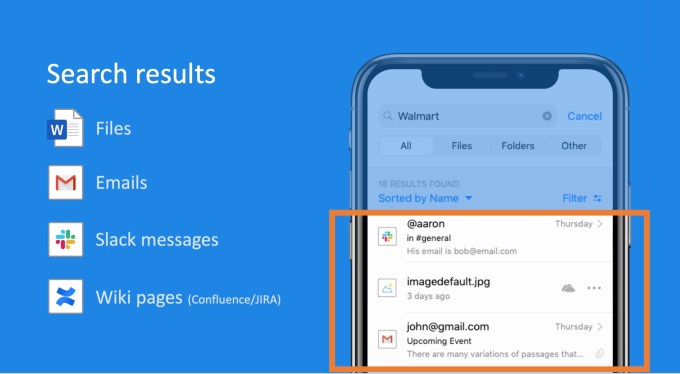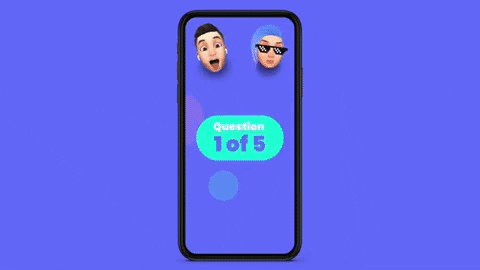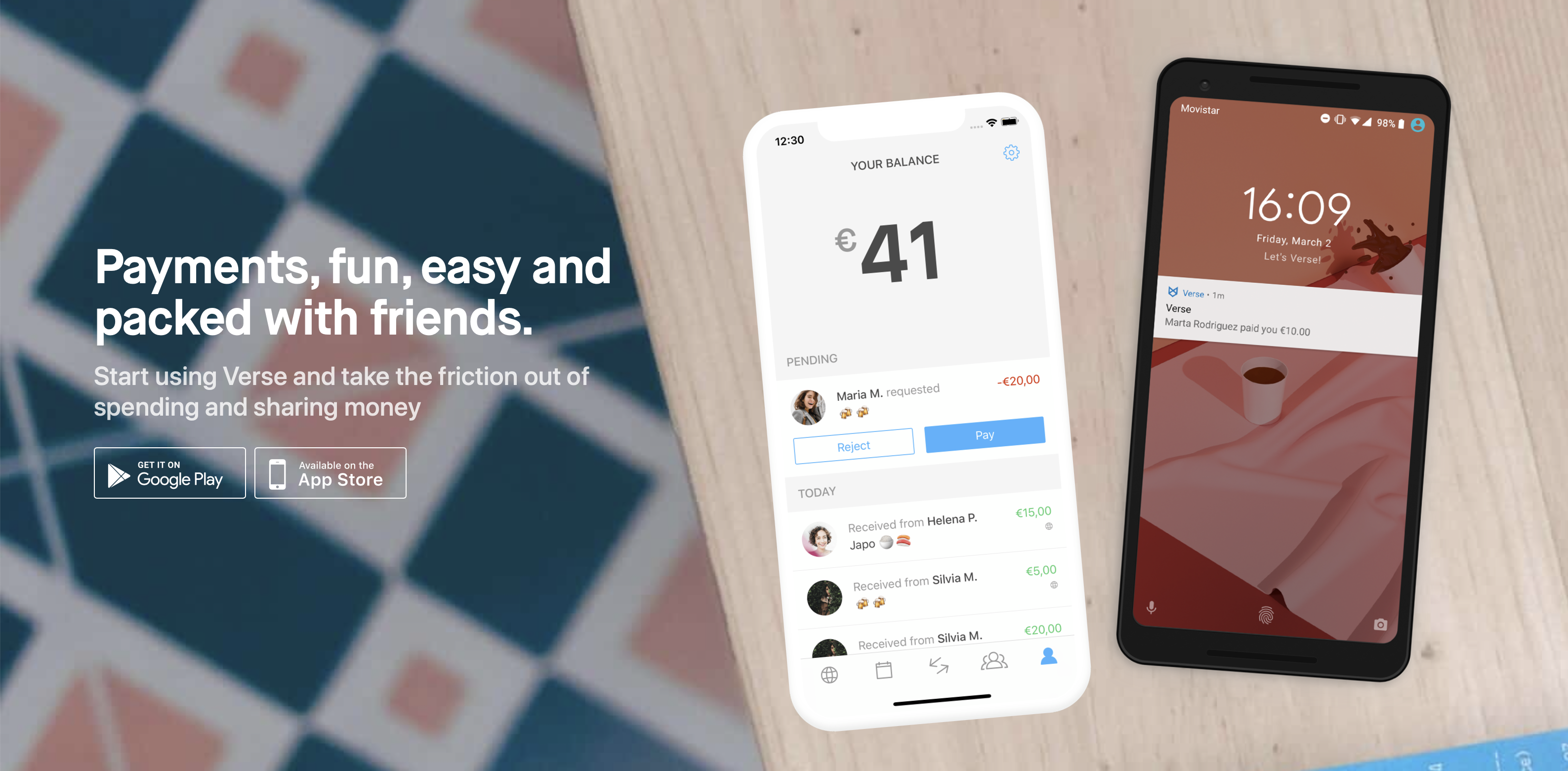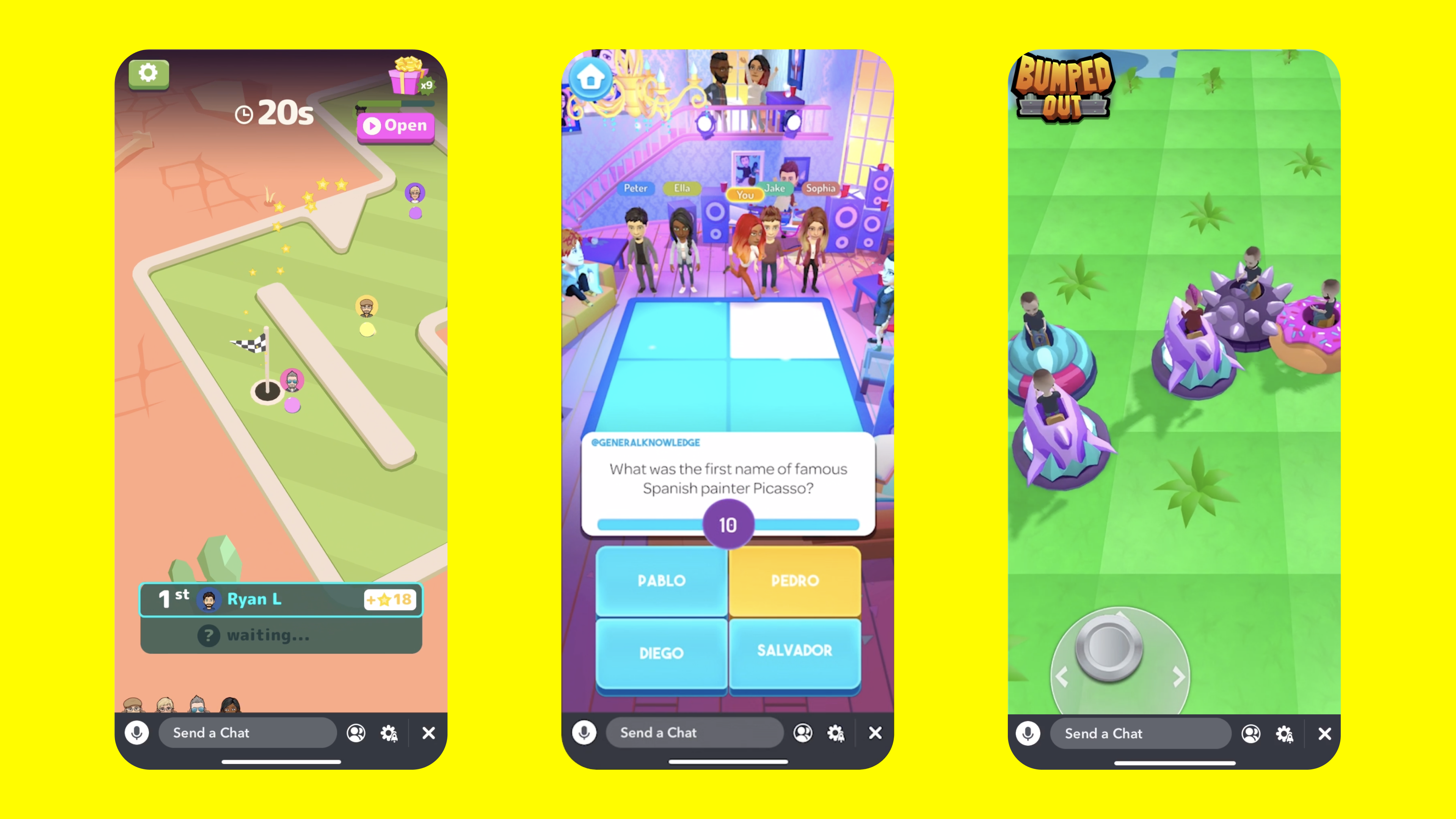Apps
Auto Added by WPeMatico
Auto Added by WPeMatico
Meet Vivid, a new challenger bank launching in Germany that promises low fees and an integrated cashback program. The two co-founders, Alexander Emeshev and Artem Yamanov, previously worked as executives for Russian bank Tinkoff Bank.
Vivid doesn’t try to reinvent the wheel and is building its product on top of well-established players. It relies on solarisBank for the banking infrastructure, a German company with a banking license that provides banking services as APIs to other fintech companies. As for debit cards, Vivid is working with Visa.
If you live in Germany and want to sign up to Vivid, you can expect a lot of features that you can find in other challenger banks, such as N26, but with a few additional features. Vivid users get a current account and a debit card. They can then manage their money from the mobile app.
The physical Vivid card doesn’t feature any identifiable details — there’s no card number, expiry date or CVV. Just like Apple’s credit card in the U.S., you have to check the mobile app to see those details. Every time you make a purchase, you receive a notification. You can lock and unlock your card from the app. The card works in Google Pay but not yet in Apple Pay.
In order to make money management easier, Vivid lets you create pockets. Those are sub-accounts presented in a grid view, like on Lydia or N26 Spaces. You can move money between pockets by swiping your finger from one pocket to another. Each pocket has its own IBAN.
You can associate your card with any pocket. Soon, you’ll also be able to share a pocket with another Vivid user. Like on Revolut, you can exchange money to another currency. The company adds a small markup fee but doesn’t share more details.
As for the cashback feature, the startup focuses on a handful of partnerships. You can earn 5% on purchases at REWE, Lieferando, BoFrost, Eismann, HelloFresh and Too Good To Go, and 10% on online subscriptions, such as Netflix, Prime Video, Disney+ and Nintendo Switch Online. While it’s generous, you’re limited to €20 maximum in cash back per month.
Interestingly, Vivid also wants to bring back Foursquare-style mayorship. If you often go to the same bar or café and you spend more than any other Vivid user over a two-week window, you become the mayor and receive 10% cashback.
Vivid has two plans — a free plan and a Vivid Prime subscription for €9.90 per month. Prime users receive a metal card, more cash back on everyday purchases and higher withdrawal limits.
The company plans to launch stock and ETF trading in the coming months. Vivid also plans to expand into other European countries this year.
Vivid is entering a crowded market, but already offers a solid product if everything works as expected. It’s going to be interesting to see how the product evolves and if they can attract a large user base.
Powered by WPeMatico
Finding somewhere in a Slack conversation, or stored in Box, Dropbox, Google Docs or Office 365, that one document you want to attach to an email is a huge challenge as we find ourselves spreading our content across a variety of cloud services. It’s one challenge that Cloudtenna has been trying to solve, and today the company announced a $2.5 million funding round along with the release of a new mobile search tool.
The funding comes from a variety of unnamed investors, along with Blazar Ventures, and brings the total raised to $6.5 million, according to the company.
Cloudtenna co-founder Aaron Ganek says that by using AI and document metadata, his company can find content wherever it lives. “What we’re really focused on is helping companies bring order to file chaos. Files are scattered everywhere across the cloud, and we have developed AI-powered applications that help users find files, no matter where they’re stored,” he said.
The company introduced a desktop search application in 2018 and today it’s announcing a mobile search tool called Workspace to go with it. Ganek says they built this app from the ground up to take advantage of the mobile context.
“Today, we’re bringing the search technology to smartphones and tablets. And just to be clear, this is not just a mobile version of our desktop product, but a complete case study in how people collaborate on the go,” he said.

Image Credit: Cloudtenna
The AI component helps find files wherever they are based on your user history, who you tend to collaborate with and so forth. That helps the tool find the files that are most relevant to you, regardless of where they happen to be stored.
He says that raising money during a pandemic was certainly interesting, but the company has seen an uptick in usage due to the general increase in SaaS usage during this time, and investors saw that too, he said.
The company launched in 2016 and currently has nine employees, but Ganek said there aren’t any plans to expand on that number at this time, or at least any number he was ready to discuss.
Powered by WPeMatico
Zynga’s popular game, Words with Friends, is coming to Alexa. The new voice-powered game will be known as Word Pop, and — sorry — you can’t actually play it with friends right now, even though the game lives within Zynga’s broader Words with Friends franchise. Instead, the new Alexa voice game is viewed as a complement to Zynga’s multiplayer version. It’s a place where players can sharpen their word-building skills, no friends required.
To launch Word Pop, you’ll say “Alexa, open Word Pop” on any Alexa device to get started.
In the game, Alexa will challenge the players to create as many words as possible from a six-letter bank, through a series of one-minute sessions. During this time, players must say or spell as many words as they can, while earning points for both the number and length of the words they find.
On Alexa devices with a screen, like the Echo Show, there will also be a visual component where players will see their letter banks and completed words. Arguably, the game is better this way as it allows you to view the letters and combinations much like you can on a mobile device or computer. Without the screen, the game will prove much more challenging — though that may appeal to some Words with Friends experts.
The companies characterize their teaming up on the new title as a “partnership,” where both Amazon and Zynga’s teams worked together to build the game. However, there isn’t currently a revenue-sharing situation, we understand, as the game is free and doesn’t offer in-app purchases. (Of course, if the title proves popular enough, the companies could likely revisit that decision.)
In the meantime, however, the companies see the opportunity to build their respective brands. Zynga can generate interest in its aging, cross-platform Words with Friends franchise by way of the new Alexa skill, while Amazon gets to introduce the idea of Alexa gaming to consumers via a well-known industry brand and popular game that users will already know how to play.
“I’m thrilled that by adding Word Pop to the Words With Friends family, players will be able to test and improve their word skills, making them even better Words With Friends players,” said Bernard Kim, president of Publishing at Zynga, in a statement. “The beauty of Words With Friends is that even after ten years, we’re still discovering new ways for the franchise to bring joy to players around the world. We’re dedicated to experimenting with services such as Alexa and game modes like Word Pop, which gives players a familiar, yet novel experience.”
Powered by WPeMatico

Thor Fridriksson is no stranger to trivia. The tech entrepreneur founded QuizUp, one of the hottest mobile games of the early aughts, which attracted more than 100 million downloads, a deal with NBC and had raised more than $40 million from notable investors. Plain Vanilla Games, the parent company of QuizUp, eventually sold to GluMobile for $7.5 million.
But that doesn’t mean Fridriksson is hanging up his hat on trivia. In fact, the lessons he learned the first time around have led him to this very moment. Today, Fridriksson is launching Trivia Royale, the latest game out of Iceland-based TeaTime Games.
Trivia Royale is, like it sounds, a trivia game in the genre of Battle Royale. It’s a 1,000-person head-to-head Trivia tournament. Like QuizUp, players can choose to do one-to-one Trivia matches based on categories in a casual way. But the real draw of the mobile game is Trivia Royale.
It starts with 1,000 people who are matched into one-on-one battles around general trivia. Each battle includes five questions that go from easy to more difficult, with 10 seconds to answer each question. The faster you answer the question, the more points you get. The final question in the battle is worth double points.
If you lose your battle, you’re out of the tournament. The pool then drops to 500 people, and then to 250 people, and so on and so forth, until you’re down to the final four and the final two. Folks who win a Trivia Royale get a “crown” that’s displayed on their avatar, as well as access to the Royale Lounge, where they can check out global and local leaderboards and chat with other Royales.
What’s most interesting about Trivia Royale is that it’s built on the TeaTime Live platform.
TeaTime, co-founded by Fridriksson, launched in February of 2018. The platform is not a game in and of itself, but rather a developer platform for game makers that adds a new level of engagement, interaction and monetization to mobile games.
On TeaTime, users can create an Animoji-style avatar that employs the front-facing camera of a smartphone to let players interact in real time with facial expressions as they play a game. Since most users don’t necessarily want to show their actual face to strangers during gameplay, TeaTime uses Snap-style filters and Apple Animoji-esque avatars to let users engage with one another without revealing their actual identity.
The initial failure of QuizUp was an inability to monetize. TeaTime was built to avoid making that same mistake twice. The existence of avatars offers a built-in monetization strategy as users look to customize and build out their avatars.
Fridriksson was also extremely averse to mobile advertising within games while he was running QuizUp, and has made his peace with some advertising with the launch of Trivia Royale. When a user wins and is rewarded with points, the user can double those points by watching an ad.
Users can also supplement their winnings by buying virtual currency to update their avatar with hats, piercings, hand gestures, glasses and more.
Moreover, users need a ticket to enter into a Trivia Royale tournament. These tickets are provided every couple hours, so users who want to play game after game without waiting will need to use virtual currency to buy a ticket.
Obviously, it would be difficult to get and keep 1,000 players in a single tournament at once, so Trivia Royale focuses on matching people who are at the same level in the tournament rather than holding these tourneys in individual lobbies.
“The challenge is to get a hit game on a platform before it becomes a platform because you need that,” said Fridriksson. “So what I did, essentially, is that I just totally changed my focus as a CEO and went into full-hearted product mode for this game. I find myself back in the mode of creating a cool user experience, and it’s the most fun I’ve ever had.”
In beta, the company has used bots to fill in the gaps where there aren’t available matches for players. In the first five rounds of the Trivia Royale tournament, Fridriksson says there is about a 60% chance that users will be matched with a real person, with the likelihood of being paired with a bot getting higher the further a user gets in the tournament.
The company ran a beta in Ireland, New Zealand and Canada over the past two weeks and has gotten 9,000 beta users, with day-one retention at 50% and with average users playing around 12 games per day.
As the game gets more users, the company hopes to match users with real people 95% of the time and ultimately get to a place where the bots fade out of the equation.
At this point, the game has more than 20,000 questions across 40 categories including TikTok, Geography, Movies, Superheroes, Videogames, Sports, Disney and Logos, with more questions added every day.
Powered by WPeMatico
Fintech startup Revolut has expanded its open banking feature to Ireland. The feature first launched in the U.K. back in February. Once again, the startup is partnering with TrueLayer to let you add third-party bank accounts to your Revolut account.
The feature launch also marks the launch of TrueLayer in Ireland. For now, Revolut users can only link their Revolut account with AIB, Permanent TSB, Ulster Bank and Bank of Ireland. Revolut and TrueLayer will add support to other banks in the future. Revolut currently has 1 million customers in the Republic of Ireland.
The idea behind open banking is quite simple. Many online services rely on application programming interfaces (APIs) to talk to each other. You can connect with your Facebook account on many online services, you can interact with other services from Slack, etc.
Financial institutions have been lagging behind on this front, but it is changing thanks to new regulation and technical updates. With open banking, your bank account should work more like a traditional internet service.
When you connect your bank account with Revolut, you can view your balance and past transactions from a separate tab that lists all your linked accounts. Users can also take advantage of Revolut’s budgeting features with their bank accounts.
As TechCrunch’s Steve O’Hear noted when he first covered Revolut’s open banking feature, Revolut was originally authorized for Account Information Services (AIS) by the U.K. regulator, the Financial Conduct Authority. It lets you access and display information from other financial institutions.
But the startup now has permission to carry out Payment Initiation Services (PIS). It means that you’ll soon be able to initiate transfers from your bank account directly from Revolut. It should make it much easier to top up your Revolut balance, for instance.
While this feature might seem anecdotal, Revolut wants to build a comprehensive financial hub for all your financial needs — a sort of super app for everything related to money. With open banking, you theoretically no longer have to open your traditional banking app.

Image Credits: Revolut
Powered by WPeMatico
Square acquired Verse, a Spanish peer-to-peer payment app that works across Europe. Terms of the deal are undisclosed. According to Crunchbase, Verse had raised $37.6 million from Spark Capital, eVentures, Greycroft Partners and others.
Square has attracted a ton of users with Cash App, its peer-to-peer payment app that lets you easily send and receive money from your phone. But Cash App has only been available in the U.S. and the U.K.
Acquiring Verse seems like a good fit to expand Square’s presence in Europe. Verse’s team will join the Cash App division within Square.
There are many similarities between Cash App and Verse. Verse’s main feature is that it lets you send and receive money from a mobile app. Users don’t pay any fees and transfers occur in just a few seconds.
Verse users sign up with their phone numbers, which means that you can send money to other users as long as you have their phone numbers in your address book. If you don’t have enough money on your Verse account, the app can charge your debit card directly. And if you want to withdraw money from your Verse account, you can transfer your balance to your bank account.
You can also track group expenses from the app (like Splitwise), create money pots and organize events with a basic ticketing feature.
More recently, Verse launched a Visa debit card in Spain, which lets you spend money on your Verse account directly. You don’t pay any foreign exchange fees and you get two free ATM withdrawals per month. Verse uses Visa’s exchange rate.
While the startup hasn’t shared usage numbers for a while, according to App Annie, it is currently the No. 247 most downloaded app in the App Store in Spain across all categories. Peer-to-peer payment is a fragmented market. For instance, French startup Lydia has 3 million users in France.
“At this point, our main priority is enabling Verse to continue their successful growth in Europe. Verse will continue to operate as an independent business, working out of their offices with no immediate changes to their existing products, customers, or business operations,” Square wrote in the announcement.
The three most important words in this statement are “at this point.” Square doesn’t want to fix what isn’t broken. But I wouldn’t be surprised if Verse slowly evolves to become Cash App in Europe.

Image credits: Square
Powered by WPeMatico
Apple is under formal investigation by antitrust regulators in European Union — following a number of complaints related to how it operates the iOS App Store and also its payment offering, Apple Pay.
The Commission said today that it has concerns that conditions and restrictions applied by the tech giant may be distorting competition in a number of areas, following a preliminary probe of the issues.
Back in March 2019, European music streaming service Spotify filed an antitrust complaint against Apple — railing very publicly against what it dubbed an “Apple tax”; aka the 30% tariff the tech giant applies on accepting payments in apps on its App Store. Spotify also accused Apple of impeding its business by applying arbitrary rules — such as making it harder to offer its own users discounts.
The Commission confirmed today that it’s looking formally into whether Apple’s rules for app developers on the distribution of apps via the App Store violate EU competition rules. It said the probe focuses on Apple’s mandatory requirement that app developers use its own proprietary in-app purchase system, as well as restrictions applied on the ability of developers to inform iPhone and iPad users of alternative cheaper purchasing possibilities outside of apps.
As well as the very public complaint from Spotify, the Commission has received a similar complaint from an unnamed e-book/audiobook distributor related to the impact of the App Store rules on competition.
Two specific restrictions imposed by Apple in its agreements with companies that wish to distribute apps to users of Apple devices will be investigated, per the Commission — namely [emphasis its]:
(i) The mandatory use of Apple’s own proprietary in-app purchase system “IAP” for the distribution of paid digital content. Apple charges app developers a 30% commission on all subscription fees through IAP.
(ii) Restrictions on the ability of developers to inform users of alternative purchasing possibilities outside of apps. While Apple allows users to consume content such as music, e-books and audiobooks purchased elsewhere (e.g. on the website of the app developer) also in the app, its rules prevent developers from informing users about such purchasing possibilities, which are usually cheaper.
“Following a preliminary investigation the Commission has concerns that Apple’s restrictions may distort competition for music streaming services on Apple’s devices,” it writes in a press release. “Apple’s competitors have either decided to disable the in-app subscription possibility altogether or have raised their subscription prices in the app and passed on Apple’s fee to consumers.
“In both cases, they were not allowed to inform users about alternative subscription possibilities outside of the app. The IAP obligation also appears to give Apple full control over the relationship with customers of its competitors subscribing in the app, thus dis-intermediating its competitors from important customer data while Apple may obtain valuable data about the activities and offers of its competitors.”
Commenting in a statement, Commission EVP Margrethe Vestager — who heads up competition policy for the bloc — added: “Mobile applications have fundamentally changed the way we access content. Apple sets the rules for the distribution of apps to users of iPhones and iPads. It appears that Apple obtained a ‘gatekeeper’ role when it comes to the distribution of apps and content to users of Apple’s popular devices. We need to ensure that Apple’s rules do not distort competition in markets where Apple is competing with other app developers, for example with its music streaming service Apple Music or with Apple Books. I have therefore decided to take a close look at Apple’s App Store rules and their compliance with EU competition rules.”
Vestager’s reference to a “gatekeeper” role has specific significance as the Commission is currently consulting on updating regulations for digital platforms — including floating the possibility of ex ante regulation for platforms deemed to be gatekeepers vis-a-vis other suppliers. (In parallel, the Commission is consulting on updates to competition law that may allow it to intervene more swiftly in future, in instances where it suspects digital markets have ‘tipped’.)
Spotify welcomed the Commission’s action, writing in a statement:
Today is a good day for consumers, Spotify and other app developers across Europe and around the world. Apple’s anticompetitive behavior has intentionally disadvantaged competitors, created an unlevel playing field, and deprived consumers of meaningful choice for far too long. We welcome the European Commission’s decision to formally investigate Apple, and hope they’ll act with urgency to ensure fair competition on the iOS platform for all participants in the digital economy.
On Apple Pay, the Commission said a formal investigation of how it operates the payment tech will look at the “terms, conditions and other measures” Apple applies for integrating the payment solution in merchant apps and websites on iPhones and iPads; Apple’s limitation of access to the NFC functionality on iPhones for payments in stores; and allegations of “refusals of access to Apple Pay”.
Following a preliminary probe, the Commission said it is concerned Apple’s processes “may distort competition and reduce choice and innovation”.
It also notes that Apple Pay is the only mobile payment solution that is allowed to access NFC technology on iOS devices for making payments in stores.
“The investigation will also focus on alleged restrictions of access to Apple Pay for specific products of rivals on iOS and iPadOS smart mobile devices,” it added.
The Commission said it will carry out the investigations “as a matter of priority”, but there’s no set timeframe for how long this process might take.
EU antitrust investigations have tended to take a number of years from an announcement of a formal probe to a decision being reached. (Although, in an ongoing investigation against Broadcom, Vestager recently dusted off a tool to accelerate regulatory intervention — but as yet there’s no formal ‘statement of objections’ against Apple so it remains to be seen how this case will proceed, and whether regulators may seek to speed up any intervention.)
Reached for comment on the Commission’s announcement of the two antitrust investigations, Apple dubbed the complaints “baseless” — choosing to throw shade on the complainants by claiming these companies are after “a free ride, and don’t want to play by the same rules as everyone else”.
Here’s Apple’s statement on the two investigations in full:
Throughout our history, Apple has created groundbreaking new products and services in some of the most fiercely competitive markets in the world. We follow the law in everything we do and we embrace competition at every stage because we believe it pushes us to deliver even better results.
We developed the App Store with two goals in mind: that it be a safe and trusted place for customers to discover and download apps, and a great business opportunity for entrepreneurs and developers. We’re deeply proud of the countless developers who’ve innovated and found success through our platform. And as we’ve grown together, we’ve continued to deliver innovative new services — like Apple Pay — that provide the very best customer experience while meeting industry-leading standards for privacy and security.
It’s disappointing the European Commission is advancing baseless complaints from a handful of companies who simply want a free ride, and don’t want to play by the same rules as everyone else. We don’t think that’s right — we want to maintain a level playing field where anyone with determination and a great idea can succeed.
At the end of the day, our goal is simple: for our customers to have access to the best app or service of their choice, in a safe and secure environment. We welcome the opportunity to show the European Commission all we’ve done to make that goal a reality.
Apple has had a number of run-ins with EU regulators over the years — including a probe of its acquisition of Shazam (which was later cleared); a major investigation of ebook pricing; and a probe of tax benefits in Ireland which saw it on the hook for $15BN.
French competition regulators also recently fined the tech giant $1.2BN for anti-competitive sales tactics. It’s also been fined $27M by French regulators this year for throttling old iPhones.
This report was updated with comment from Spotify
Powered by WPeMatico
WhatsApp is adding support for in-app payments, Apple is upgrading the MacBook Pro and Mac Pro desktop and we argue about the future of startup hubs.
Here’s your Daily Crunch for June 15, 2020.
1. WhatsApp finally launches payments, starting in Brazil
After months of talks and trials, WhatsApp has finally pulled the trigger on payments. Users in Brazil will be the first to be able to send and receive money through the messaging app, using Facebook Pay.
WhatsApp says that the payments service — which currently is free for consumers to use, but comes with a 3.99% processing fee for businesses receiving payments — will work by way of a six-digit PIN or fingerprint to complete transactions.
2. Apple adds new MacBook Pro graphics option and Mac Pro SSD upgrade kit
A week before kicking off WWDC, Apple introduced a pair of upgrades to its pro-level hardware lines. Both the 16-inch MacBook Pro and the Mac Pro desktop are getting select internal upgrades, starting today.
3. 3 perspectives on the future of SF and NYC as startup hubs
Three TechCrunch writers address one of the big questions about the future: Will tech continue to centralize in hubs like San Francisco and New York City, or will remote work and all the other second-order effects lead to a more decentralized startup ecosystem? (Extra Crunch membership required.)
4. Interstellar Technologies’ privately developed MOMO-5 rocket falls short of reaching space
The company first launched a vehicle in 2017, but the launch didn’t go exactly as planned and failed to reach space. In 2019, its MOMO-3 sounding rocket did break the Karman line, though just barely, and unfortunately its MOMO-5 sounding rocket launched over the weekend did not make space, as planned.
5. Introducing The Exchange, your daily dive into the private markets
The Exchange is Alex Wilhelm’s regular dive into the financial side of the startup world, and how the public markets exert gravity (or lift) on private companies. These themes might sound familiar to Daily Crunch readers, since we’ve linked to plenty of Alex’s pieces, but now it’s an official column with an official name.
6. Tesla’s US-made Model 3 vehicles now come equipped with wireless charging and USB-C ports
Tesla Model 3 vehicles produced at its Fremont, Calif. factory will reportedly come standard with a wireless charging pad and USB-C ports, upgrades that were first spotted by Drive Tesla Canada.
7. This week’s TechCrunch podcasts
The latest full-length episode of Equity discusses Facebook’s new startup venture fund, while the Monday news roundup covers the latest problems at Quibi. Over at Original Content, we review the latest season of “Queer Eye.”
The Daily Crunch is TechCrunch’s roundup of our biggest and most important stories. If you’d like to get this delivered to your inbox every day at around 9am Pacific, you can subscribe here.
Powered by WPeMatico
Sinch said on Monday it has agreed to buy Indian firm ACL Mobile for £56 million (roughly $70 million) in what is the fourth acquisition deal the Swedish mobile voice and messaging firm has entered into at the height of a global pandemic.
The Swedish firm said acquiring ACL Mobile will enable it to leverage the Indian firm’s connections with local mobile operators in the world’s second largest internet market, as well as in Malaysia and UAE, to expand its end-to-end connectivity without working with a third-party firm.
Twenty-year-old ACL Mobile, which has headquarters in Delhi, Dubai and Kuala Lumpur, enables businesses to interact with their customers through SMS, email, WhatsApp and other channels. In a press statement, the Indian firm said it serves more than 500 enterprise customers, including Flipkart, OLX, MakeMyTrip, HDFC Bank and ICICI Bank.
“With ACL we gain critical scale in the world’s second-largest mobile market. We gain customers, expertise and technology and we further strengthen our global messaging product for discerning businesses with global needs,” said Sinch chief executive Oscar Werner.
The Indian firm, which employs 288 people, reported gross profits of $14.2 million on sales of about $65 million in the financial year that ended in March. During the same period, ACL Mobile claims it delivered 47 billion messages on behalf of its enterprise customers.
“Although the long-term growth outlook is favorable, lower commercial activity in India due to the COVID-19 pandemic means that the near-term growth outlook is less predictable,” Sinch said of ACL Mobile’s future outlook.
ACL Mobile is the fourth acquisition Sinch has unveiled since March this year. Last month the company said it was buying SAP’s Digital Interconnect for $250 million. In March, it announced deals to buy Wavy and Chatlayer.
Sinch, founded in 2008, employs more than 700 people in over 40 locations worldwide and is increasingly expanding to more markets. Last month it said acquiring SAP’s Digital Interconnect will help it expand in the U.S. market. The company says it is profitable.
“Together with Sinch we are scaling up to become one of the leading global players in our industry. I’m excited about this next chapter and the many new opportunities that we can pursue together,” said Sanjay K Goyal, founder and chief executive of ACL Mobile.
Powered by WPeMatico
Snap is announcing at its Snap Partner Summit that the first games that will take advantage of Bitmoji will roll out soon. The feature was announced last year, and it looks like developers can finally take advantage of that SDK. You’ll be able to play a game with you as the hero — or at least the Bitmoji representation of you.
While this feature is reminiscent of Xbox Avatars or Nintendo’s Mii on the Wii, 3DS and Wii U, Bitmoji for Games is a cross-platform solution, from mobile games to console games and PC games. The issue with console-specific avatars is that you can’t support Xbox Avatars on PlayStation consoles for instance — that could be the reason why console manufacturers have been slowly phasing out those avatars. Bitmoji for Games could potentially solve that issue.
Having said that, the initial list of partners only includes mobile games on iOS and Android. Games include Super Brawl Universe from Nickelodeon and Playsoft, Uno from Mattel, Scrabble GO from Scopely and a soon-to-be-announced game from French startup Voodoo.
Let’s hope that Snap will be able to expand its list of partners beyond board games and casual mobile games. For instance, I would totally see Bitmoji for Games in Just Dance.
Here’s a concept video presenting the feature. As you can see, you just have to connect with your Snapchat account to import your Bitmoji to third-party games:
In other news, Snap is adding more games to Snapchat. There are already more than a dozen games that you can play with your friends when you’re chatting with them. Some of them are built in-house while others are developed by third-party game makers.
According to the company, 100 million Snapchat users have played a game since the feature launched last year. On average, users who choose to play Bitmoji Party, a Mario Party-inspired game that lets you compete with your friends in mini-games, spend 20 minutes in the game in a given day.
There’s a direct correlation between engagement and monetization as Snap doesn’t rely on micro-transactions and in-app purchases with Snap Games. The company monetizes this feature with video ads.
“We took a look at the state of mobile gaming a few years back and observed that so many successful games on mobile didn’t have your friends that deeply integrated into the experience,” Director of Product Will Wu told TechCrunch. “There’s a lot of games you just play solo on the bus or on the airplane or something like that. For us, we were really looking to recreate that experience that we may have had growing up, sitting side by side with our friends playing a game on a couch together. You’re actually looking at the same screen.”
The most interesting new game that the company will release in the coming months is Bitmoji Paint. This game is a sort of casual Minecraft-inspired creativity game. Users play together on the same planet and can paint tiles on the ground. It lets you create pixel art and look at other creations.

Other new games include Bumped Out (Zynga), Friend Quizzes (Game Closure), Ready Set Golf! (PikPok) and Sling Racers (Madbox). They will be released over the coming months.

Powered by WPeMatico